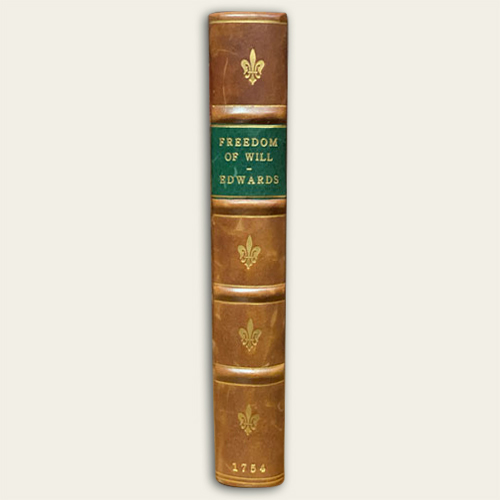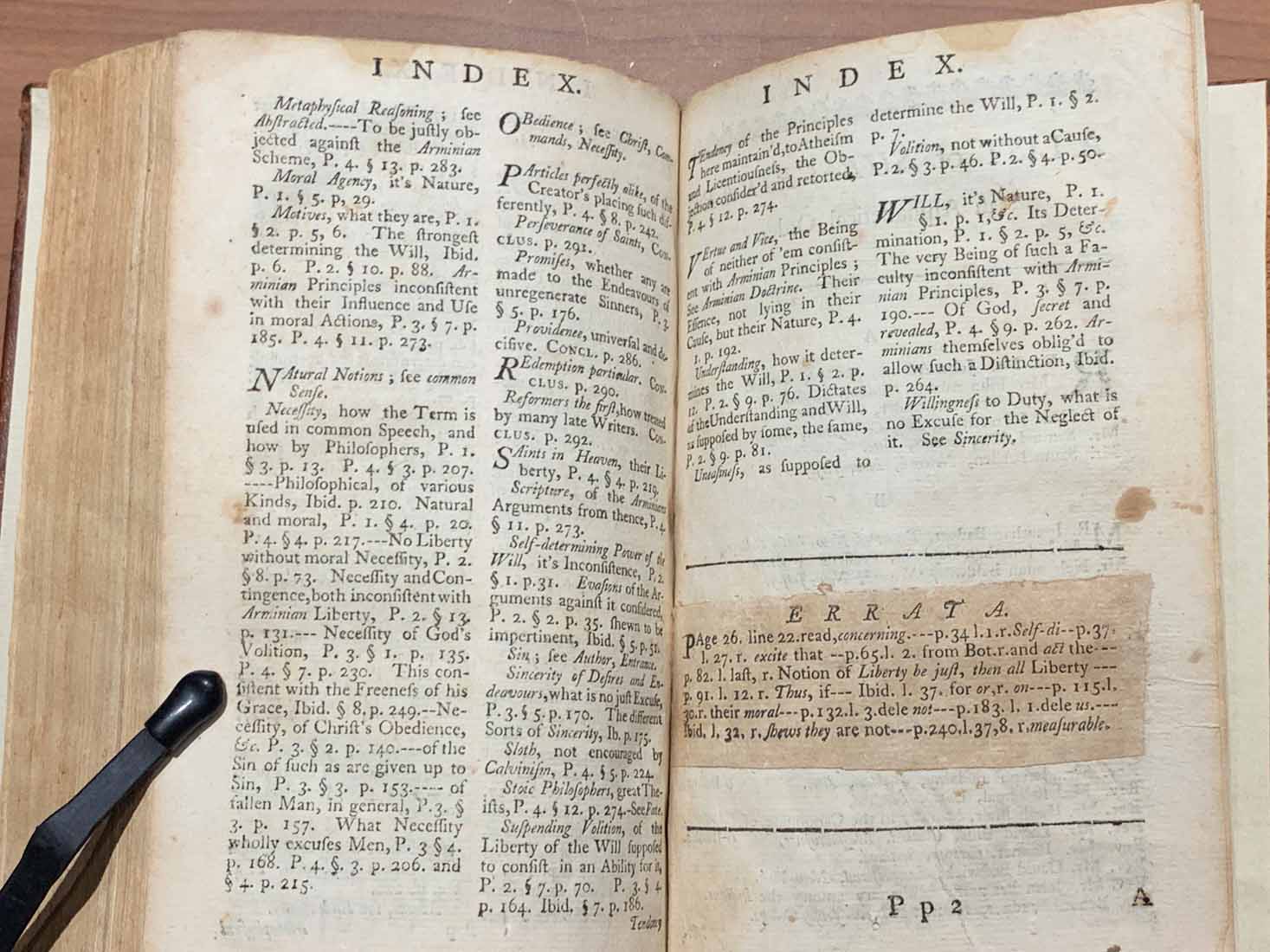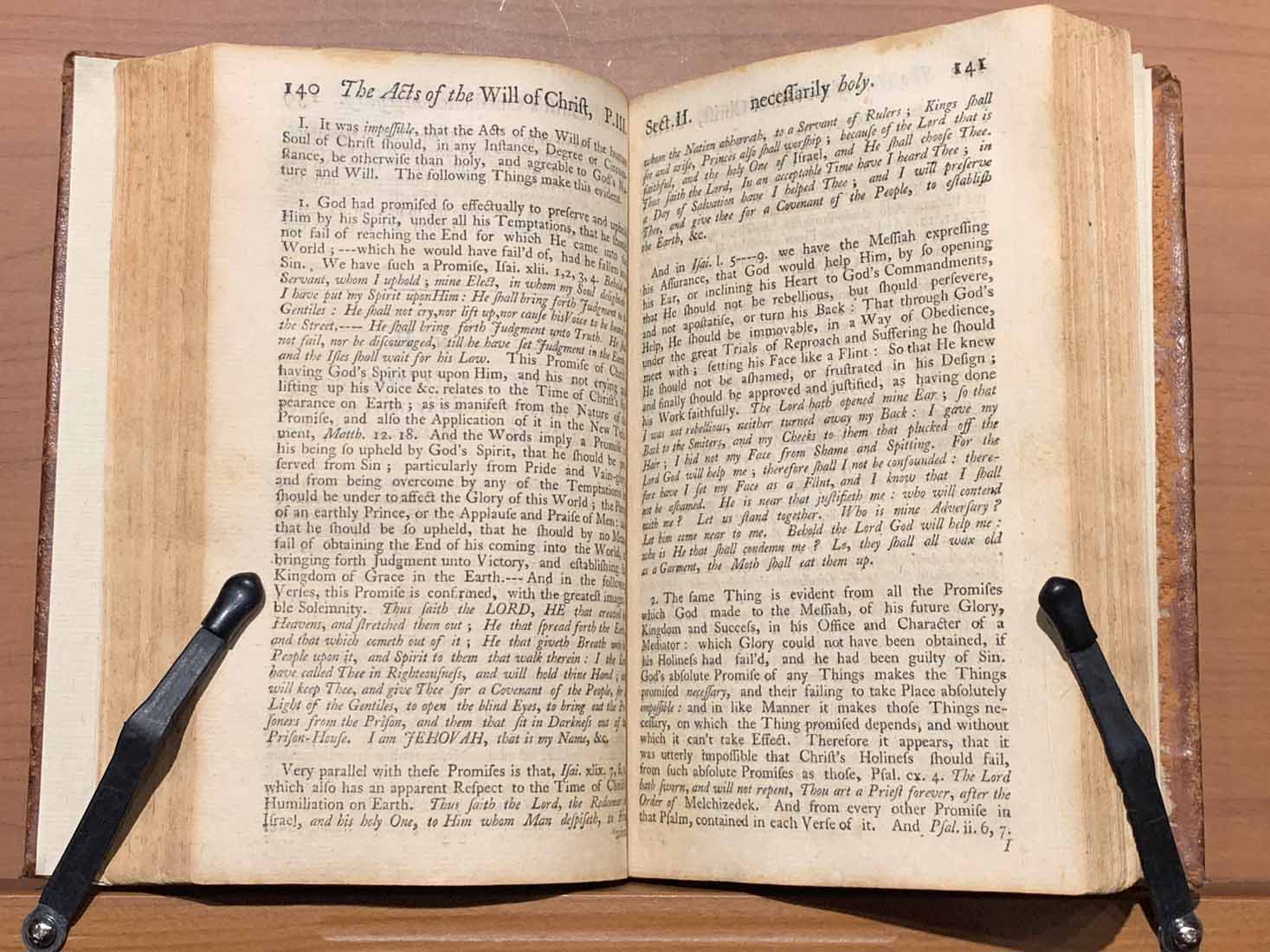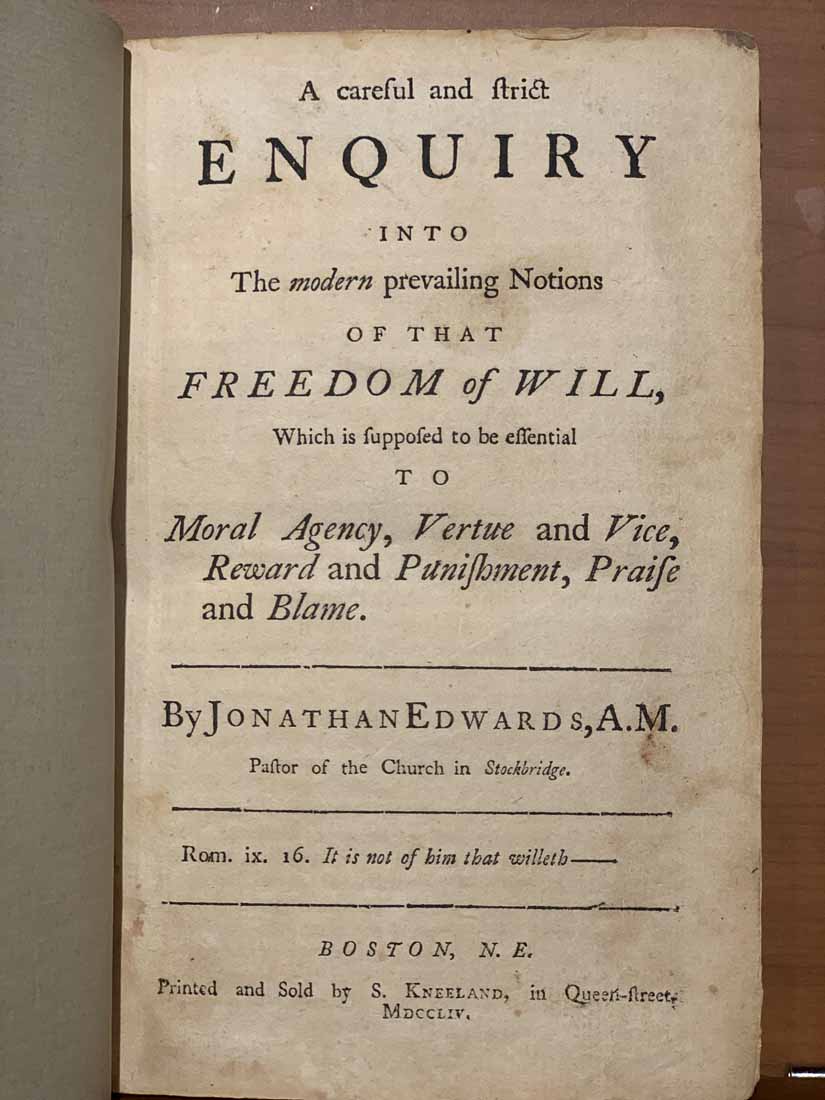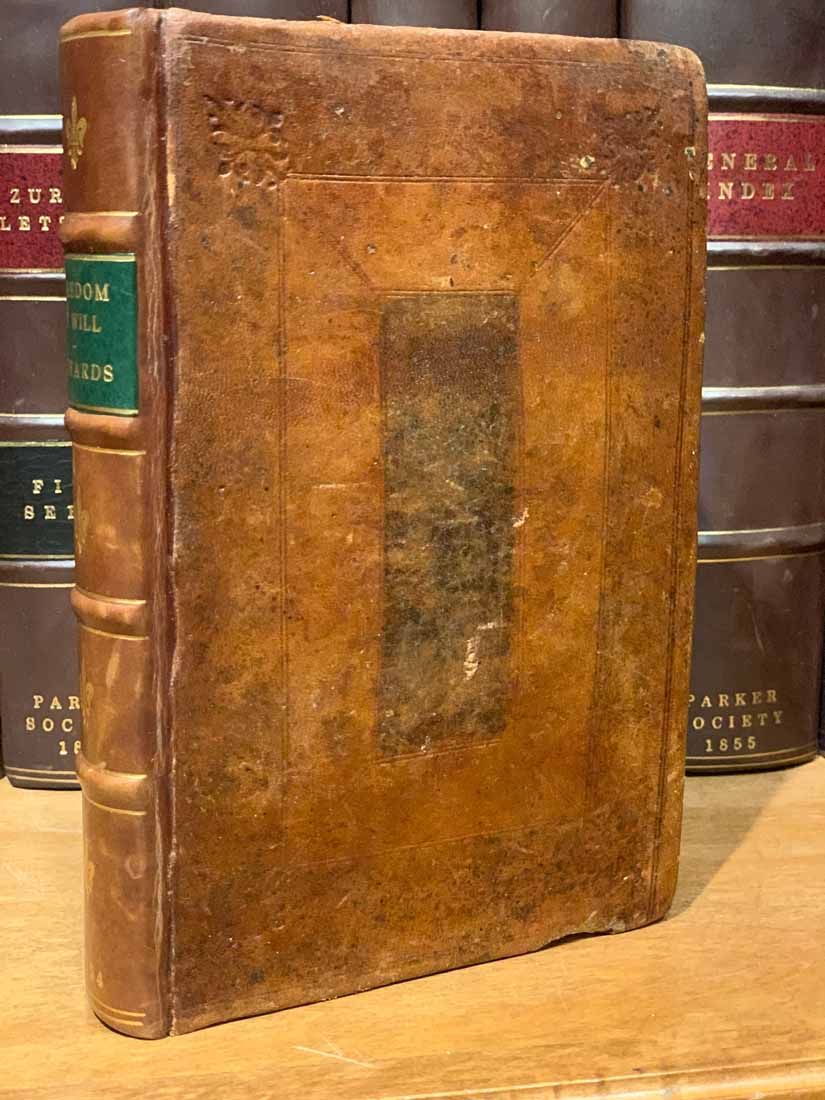1754 Freedom of Will
$2,490.00
- Version: Ancient Theology Books
- Age Range: 1700 to 1799
- Size Range: Small Bibles / Octavos (Under 8” Tall)
- Appraisal Value: $8,000
- Title Page: 1754
- Actual Size: 7.5 x 5 x 1
- Font: Roman
- Place of Printing: Boston
- Other Features: End Papers: Cotton, Full Calf Binding
- Contact Us to order or inquire about this item.
- We accept credit cards and bank transfers as detailed here.
In stock
Description
1754
Jonathan Edwards Freedom of Will
Edwards was born into a family of prominent Congregational ministers in East Windsor, Connecticut in 1703. In 1716 Edwards enrolled in Yale where he read Newton and Locke, and began “Notes on the Mind” and “Notes on Natural Science.” Locke’s influence on his epistemology, philosophy of language, and philosophical psychology was profound. Edwards’ metaphysics, however, appears more strongly influenced by Malebranche and, to a lesser extent, the Cambridge Platonists, and bears little resemblance to Locke’s. After briefly serving congregations in New York and Bolton, Connecticut, Edwards returned to Yale where he completed his Master of Arts degree and became senior tutor in 1724. In 1725, the church in Northampton chose Edwards to succeed his grandfather, Solomon Stoddard — the so-called “pope of the Connecticut valley.”
The most notable events of his tenure were the revivals of 1734 and 1740-41, the latter of which came to be known as the Great Awakening. Edwards’ defense of the revivals and criticisms of its excesses culminated in his first major treatise, the Religious Affections (1746). Worsening relations with his congregation came to a head in a dispute over qualifications for church membership. Rejecting the less rigorous standards of his grandfather, Edwards insisted on a public profession of saving faith based on the candidate’s religious experiences as a qualification not only for Holy Communion but also for church membership.
He was dismissed in 1750 by a margin of one vote. After refusing invitations to pulpits in North America and Scotland, Edwards retreated to the Indian mission at Stockbridge where he had charge of two difficult congregations, supervised a boarding school for Indian boys, and completed his last major work — Freedom of the Will (1754), Original Sin (1758), End of Creation, and True Virtue (both published posthumously in 1765). Edwards accepted an appointment as President of the College of New Jersey (now Princeton) in 1757. He died from complications arising from a smallpox inoculation on March 22, 1758, less than five weeks after his inauguration.
Edwards’ published works were primarily designed to defend the Puritan version of Calvinist orthodoxy and his influence on Congregational and Presbyterian theology was profound. His extensive notebooks reveal an interest in philosophical problems for their own sake, however, and his deployment of philosophical arguments in his private papers and published works are both sophisticated and frequently original.
- Contact Us to order or inquire about this item.
- We accept credit cards and bank transfers as detailed here.

